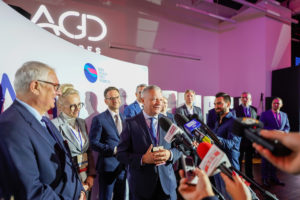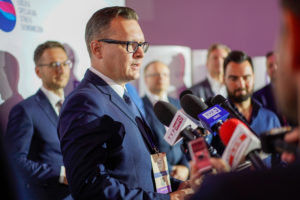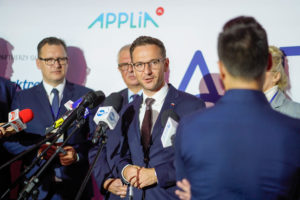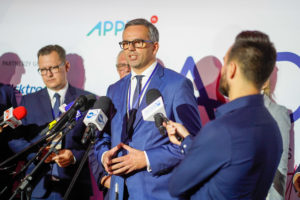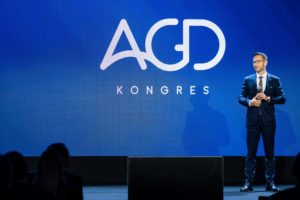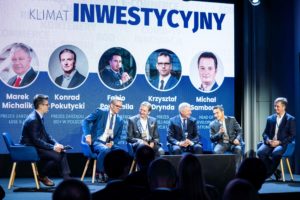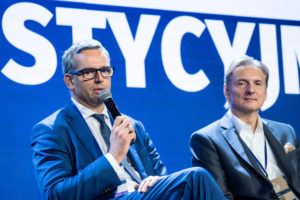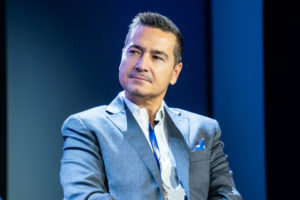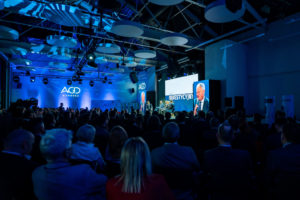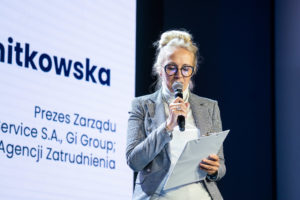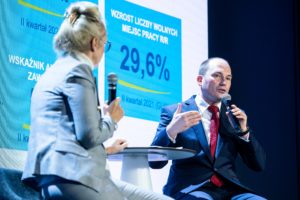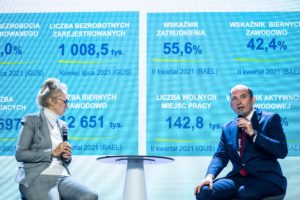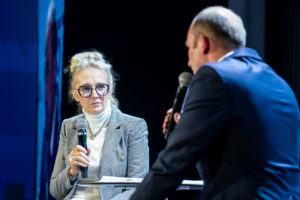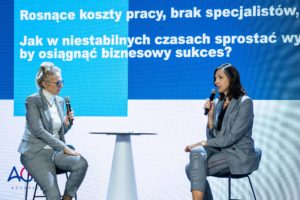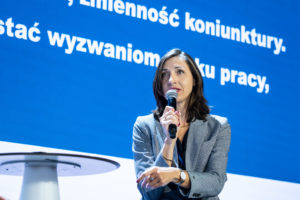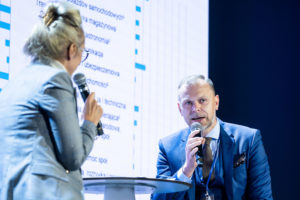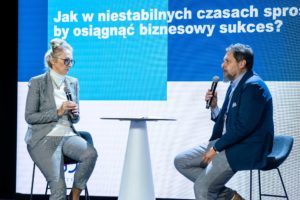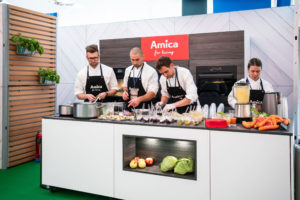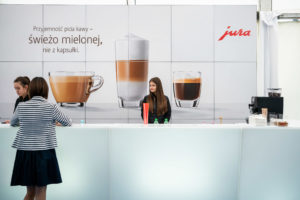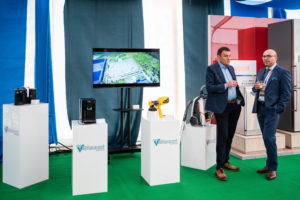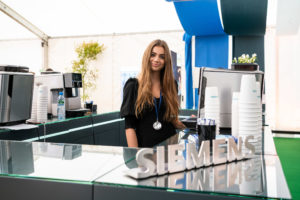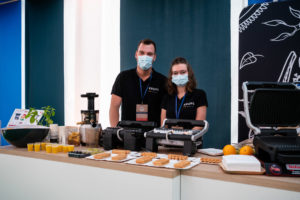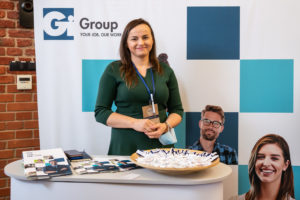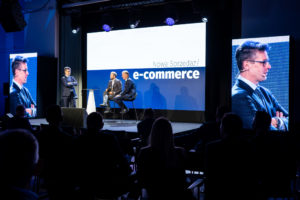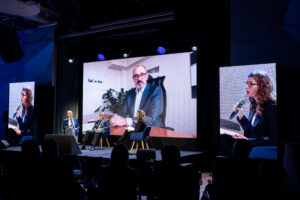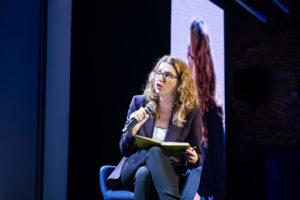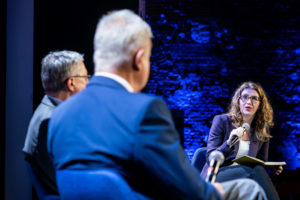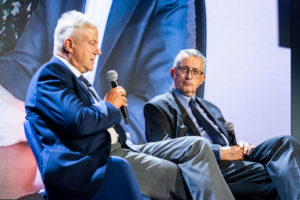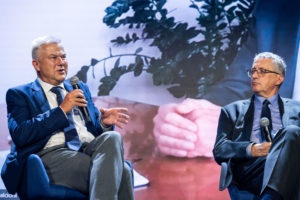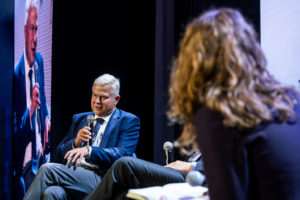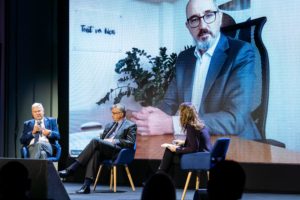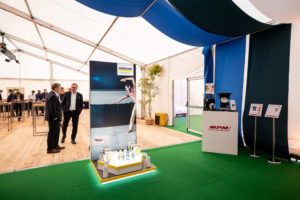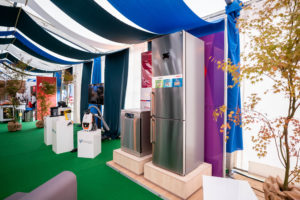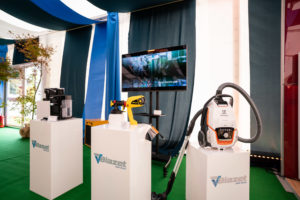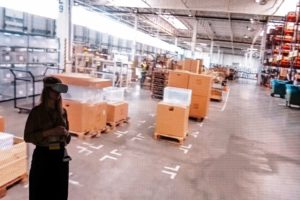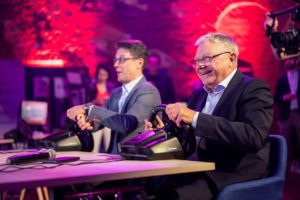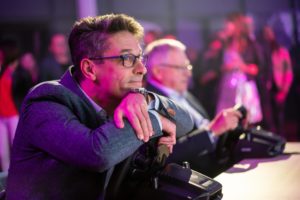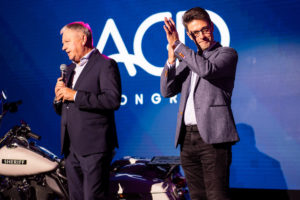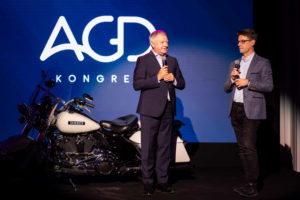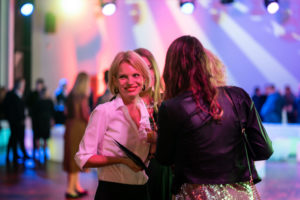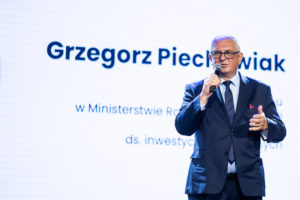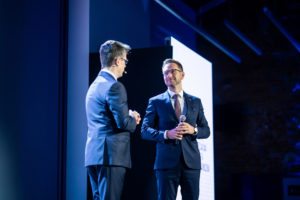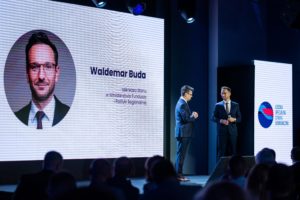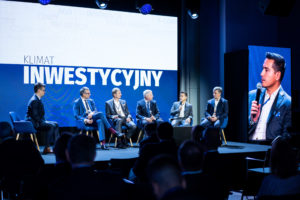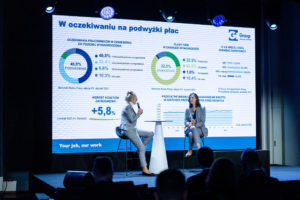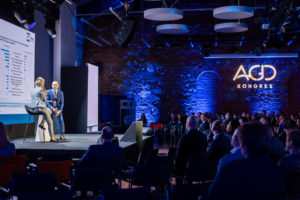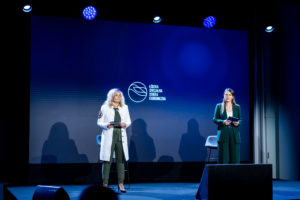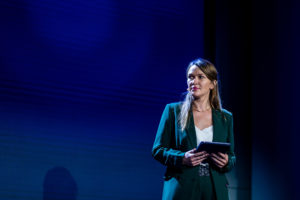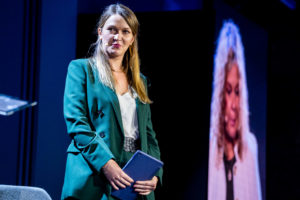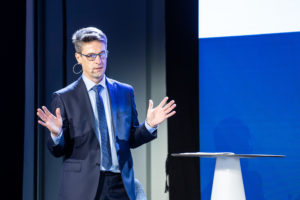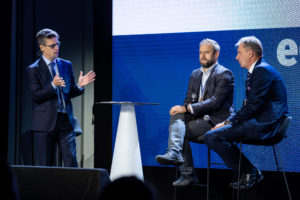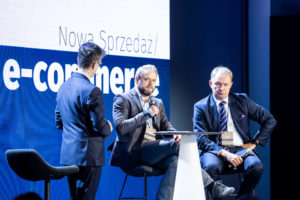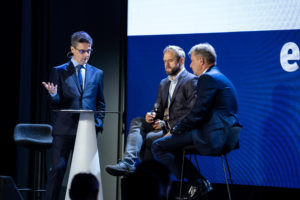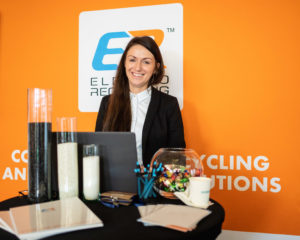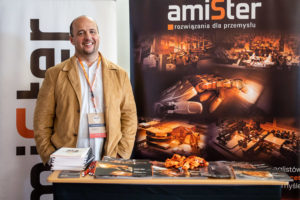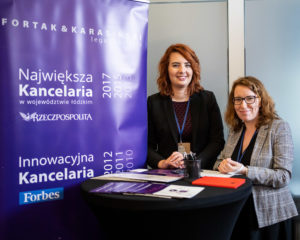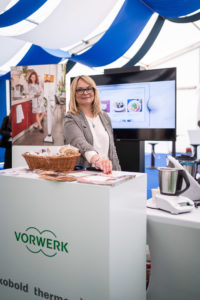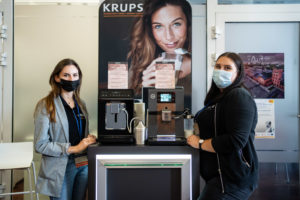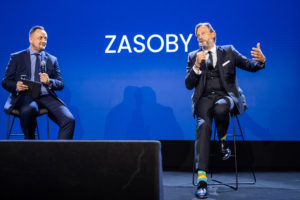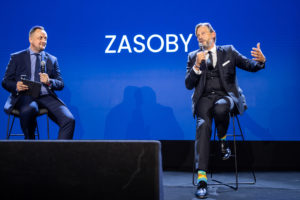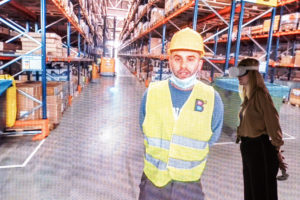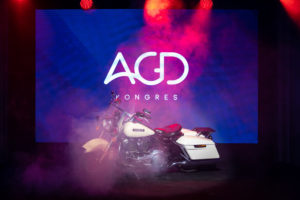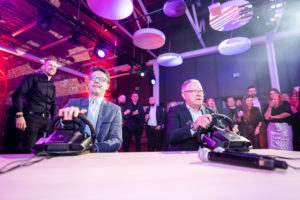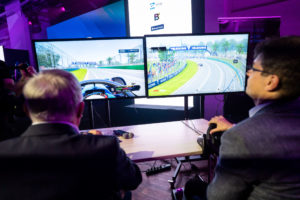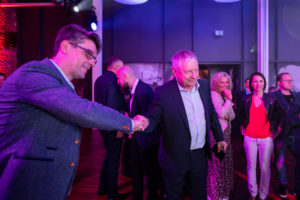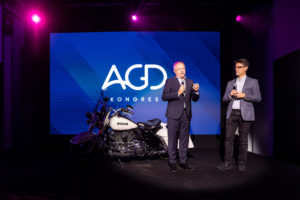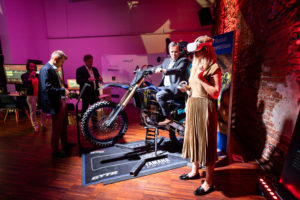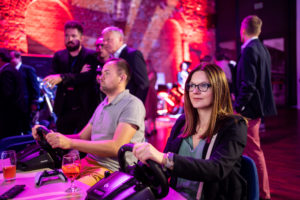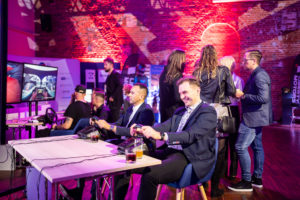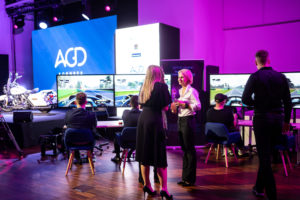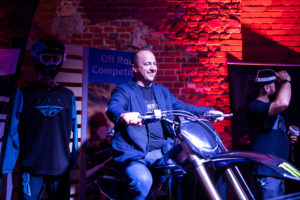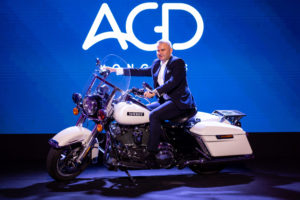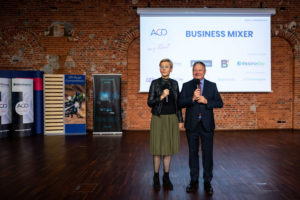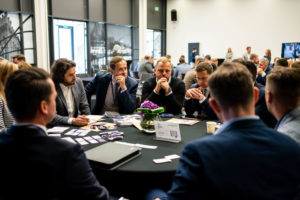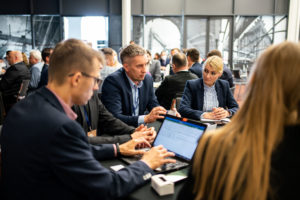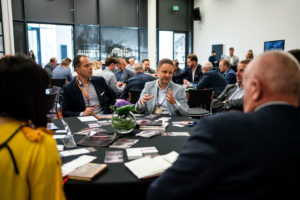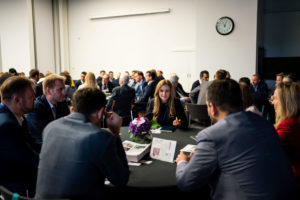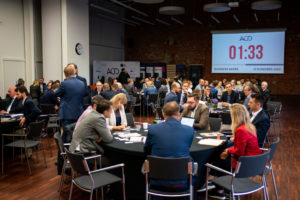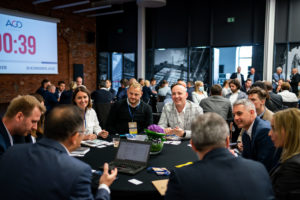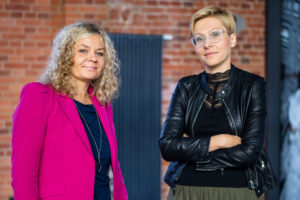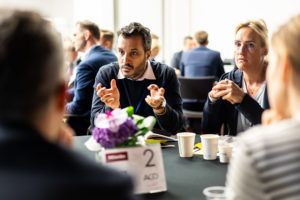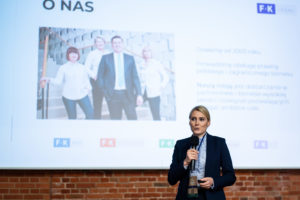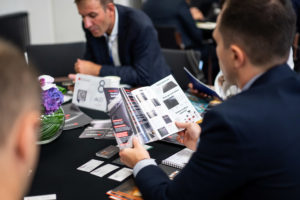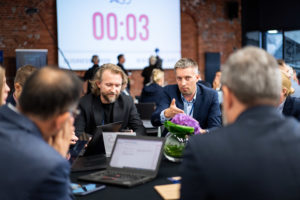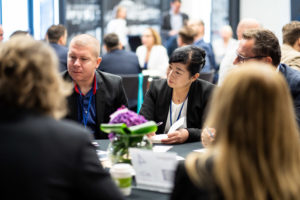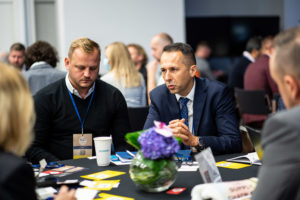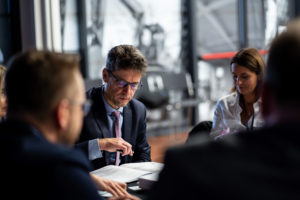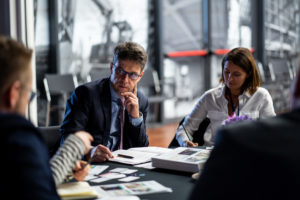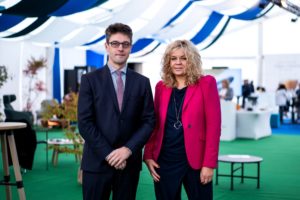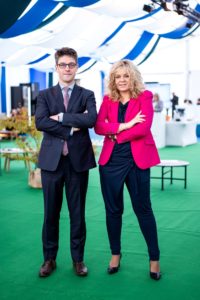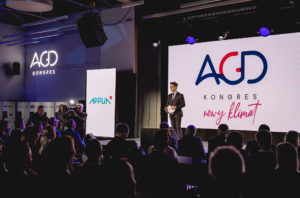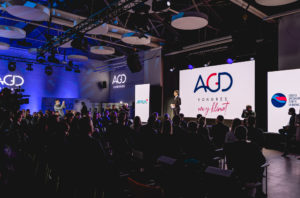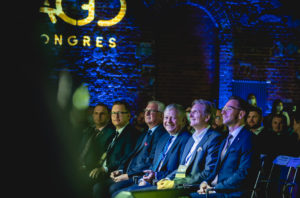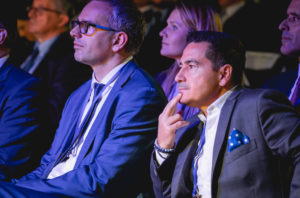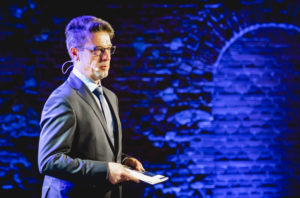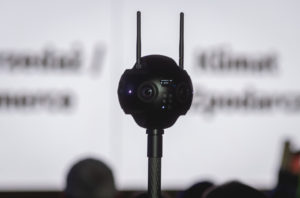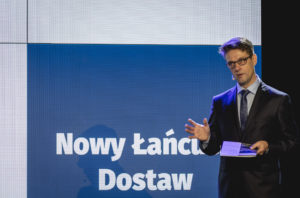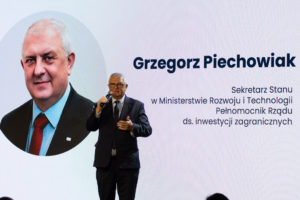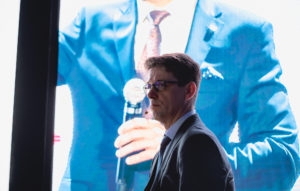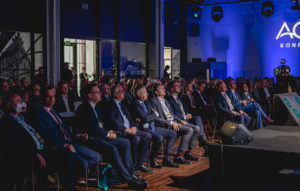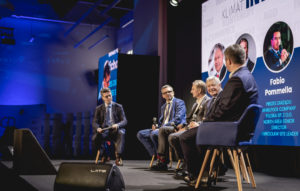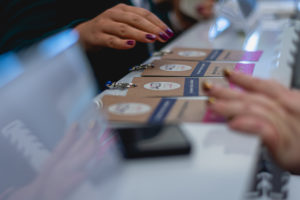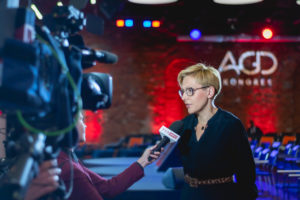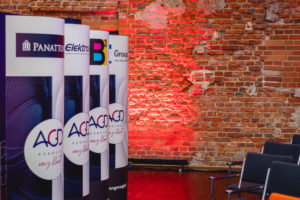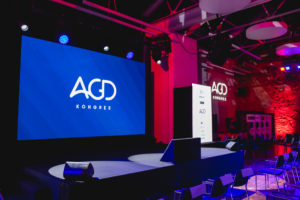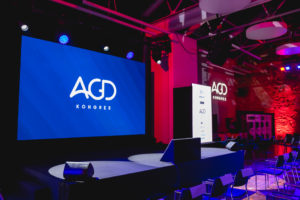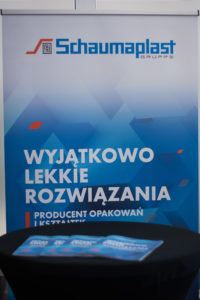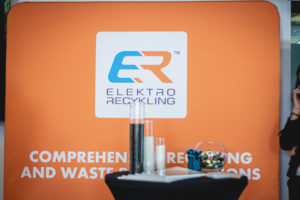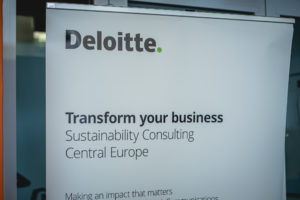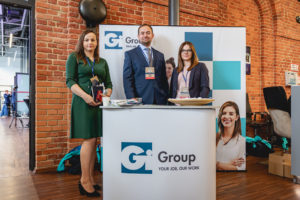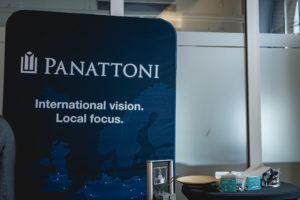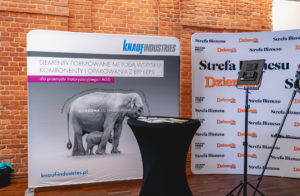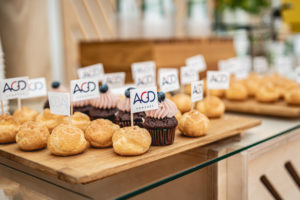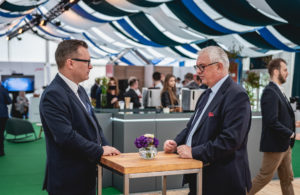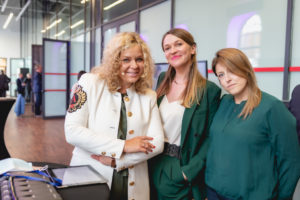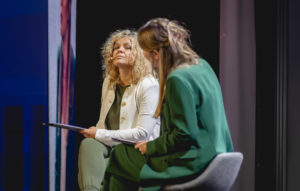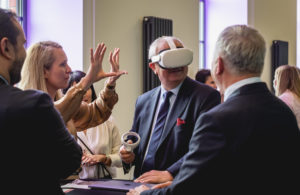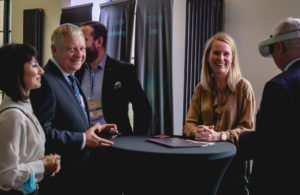Over 30 largest manufacturers and importers of household appliances, representatives of sub-suppliers, distributors, government, startups and experts met in the Lodz Special Economic Zone during the 3rd Household Appliances Congress. Organised by the LSEZ and APPLiA Poland, the Congress is the largest forum for the household appliances sector in Europe.
Around 30 thousand people are employed by household appliance manufacturers in Poland. Over 7 thousand of them are employed in the Lodz Zone. The Lodz region has become the hub of the household appliance industry in Poland and has been successfully hosting the most important companies from the household appliance sector in the Lodz Zone for three years now. The first day of the congress this year was opened by government representatives/special guests: Deputy Minister Grzegorz Piechowiak, Deputy Minister Waldemar Buda, Deputy Prime Minister Piotr Gliński and Wojciech Konecki, President of APPLiA Polska – the Association of Household Appliance Employers.
– “New Climate” the slogan of the congress can be seen multi-faceted. As a new investment climate, new technological opportunities, new supply channels or, finally, a new approach to environmental protection. I am very glad that initiatives such as the Household Appliances Congress are held in our country, close to my heart, in Lodz and its strong Lodz Special Economic Zone – said Deputy Prime Minister Piotr Gliński.
Before the main panel discussion on the investment climate began, Deputy Minister Grzegorz Piechowiak, Government Plenipotentiary for Foreign Investment, took the floor. He thanked entrepreneurs for their contribution to the economic development of the country and for reacting quickly, adapting to the situation in the difficult time of the pandemic – which made it possible at the end of 2020 to achieve very good results, maintain growth and jobs. In this process of business protection, the anti-crisis shields proposed by the government played an important role, which companies in the household appliances industry took advantage of – which was emphasised by Deputy Minister Piechowiak. He also mentioned the role of economic zones.
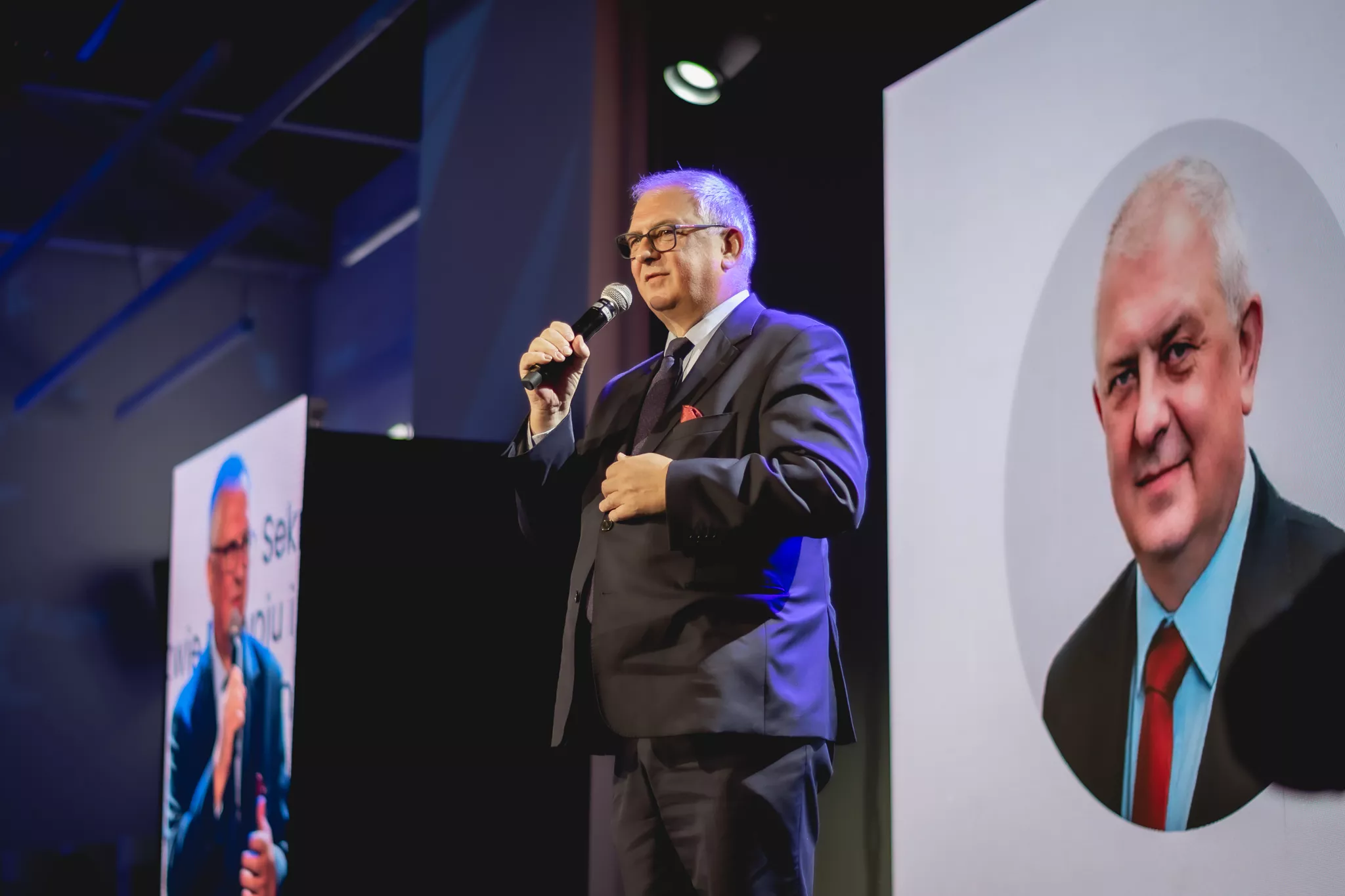
– We are the leader when it comes to household appliances in Europe and it is a very important link in our economy. The Lodz Special Economic Zone is a great place for business, which is shown by the rankings placing it third in the world. Today we have an economic boom in Poland. By the end of August all the zones had already issued over 307 decisions to support investors – said Deputy Minister Grzegorz Piechowiak.
During the 3rd Household Appliances Congress, the APPLiA Poland reports were presented, which show that 30 million household appliances were produced in Poland last year, including 24 million units of large household appliances. This is 3 percent more than in 2019. Waldemar Buda, Deputy Minister in the Ministry of Funds and Regional Policy, mentioned this upward trend in his speech.
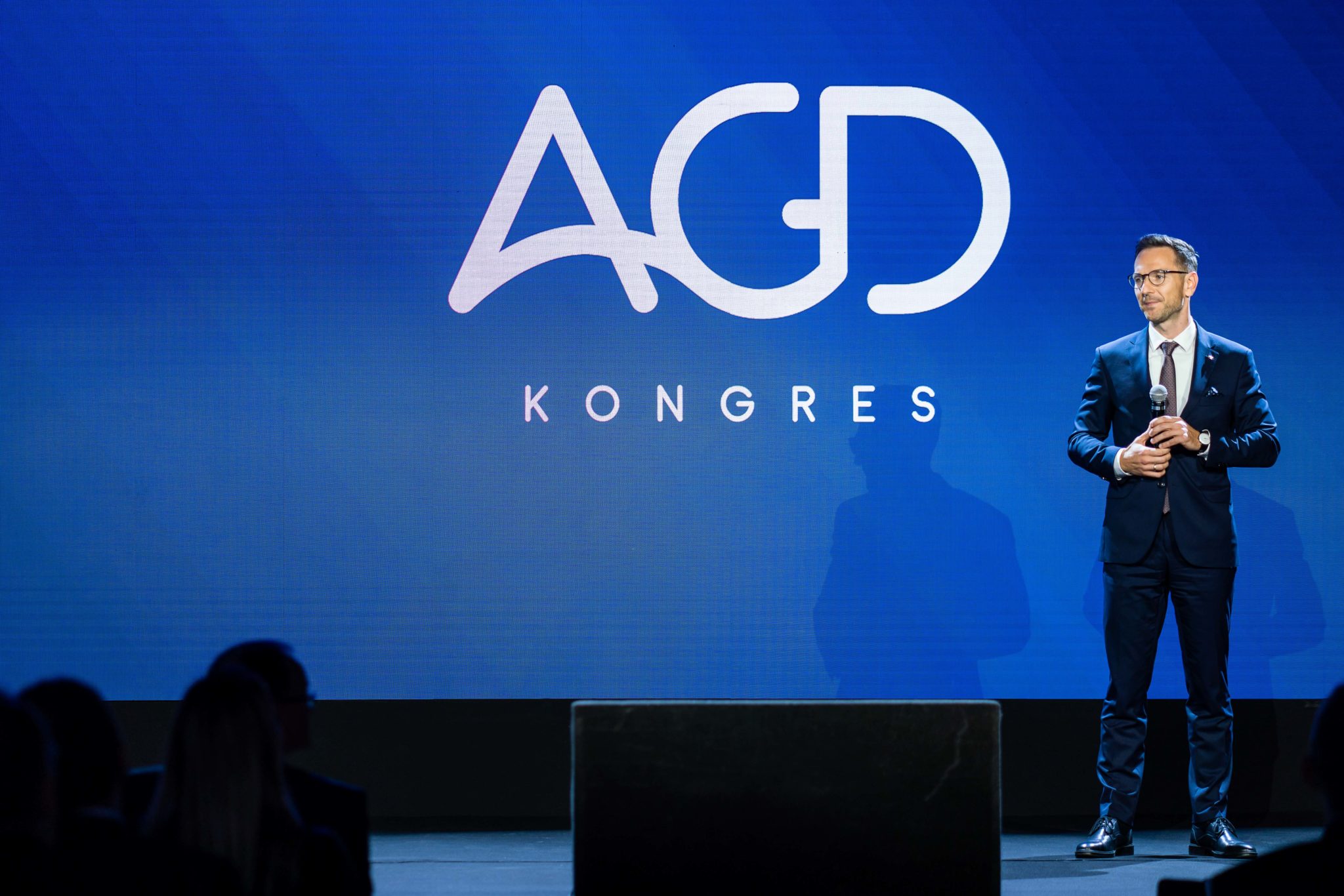
– The pandemic has shown that it is necessary to react quickly to what is happening in business, and in the case of the household appliances industry it is clear that the timing was good. Despite even several days of production downtime, it turned out that it was possible to increase production on an annual basis. 2020 was a positive year as far as the production of household appliances in Poland is concerned. This 3 percent growth translates into the scale of appliances counted in millions – noted Deputy Minister Waldemar Buda.
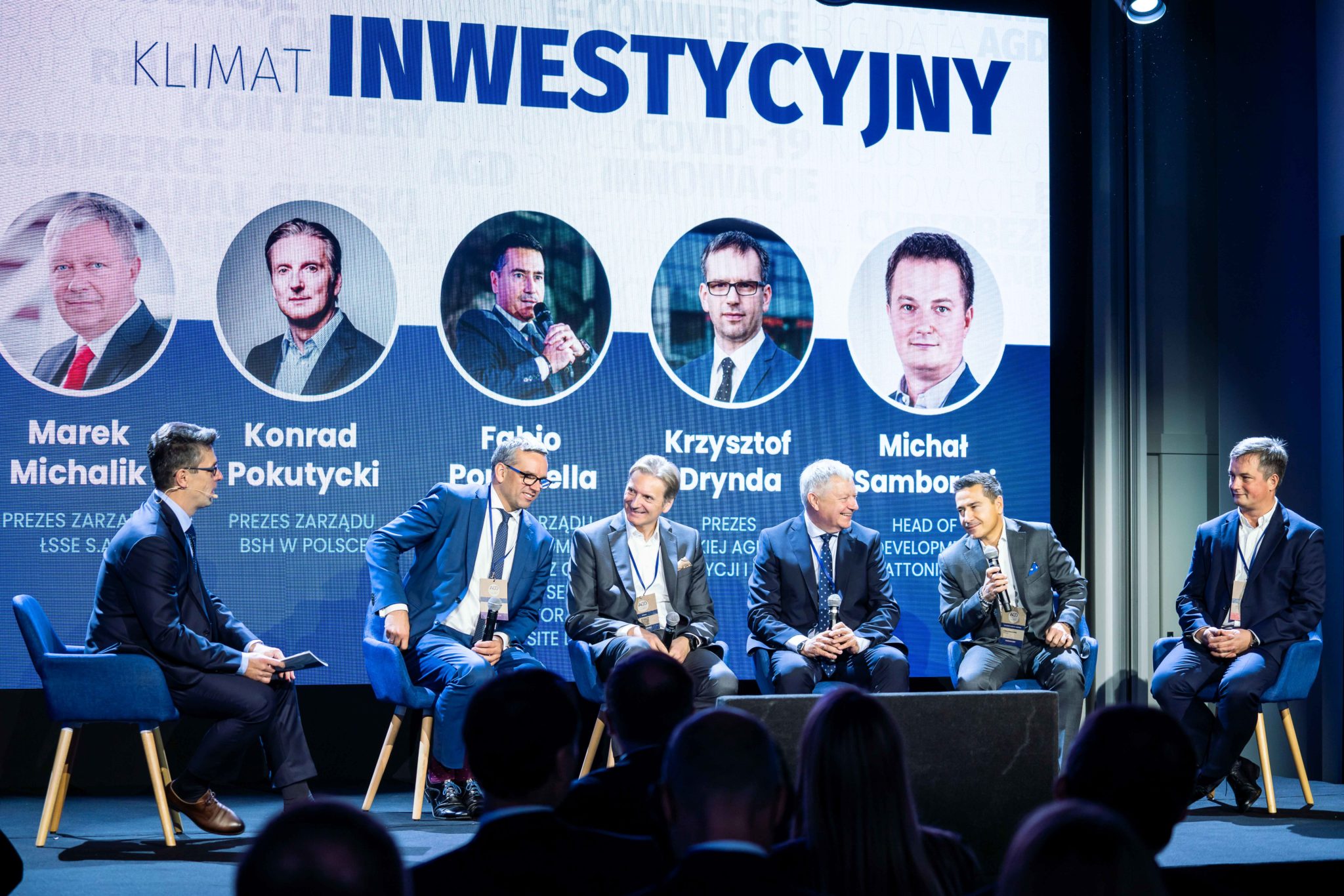
The first discussion of the 3rd Household Appliances Congress focused on the “New Investment Climate”. Panellists, among whom were presidents of LSEZ Marek Michalik, PAIH Krzysztof Drynda, BSH Konrad Pokutycki, Whirlpool Fabio Pomella and Michał Samborski from Panattoni, discussed new challenges in the areas of investment, innovation and employment. The discussion was started by Wojciech Konecki, president of APPLiA Polska who asked about the stage Poland is at in acquiring investments. Do we still have to try very hard to attract investors, or are we already such an attractive and valued market, that in fact investors are knocking at our door and we can even run through offers?
– If we look at the statistics, we at PAIH have already exceeded the number of investment projects we handle for 2019. At the moment we support over 190 projects. If they were all realised, we would be talking about over 40,000 new jobs. The latest fDi report showed that we are in third place in the world in terms of investment attractiveness. We are ahead only of the United States and Spain – said Krzysztof Drynda, President of the Polish Investment and Trade Agency.
The Lodz Special Economic Zone is also third in the world in terms of investment results in fDi rankings. Marek Michalik, president of the LSEZ spoke about coping with the crisis on the investment market.
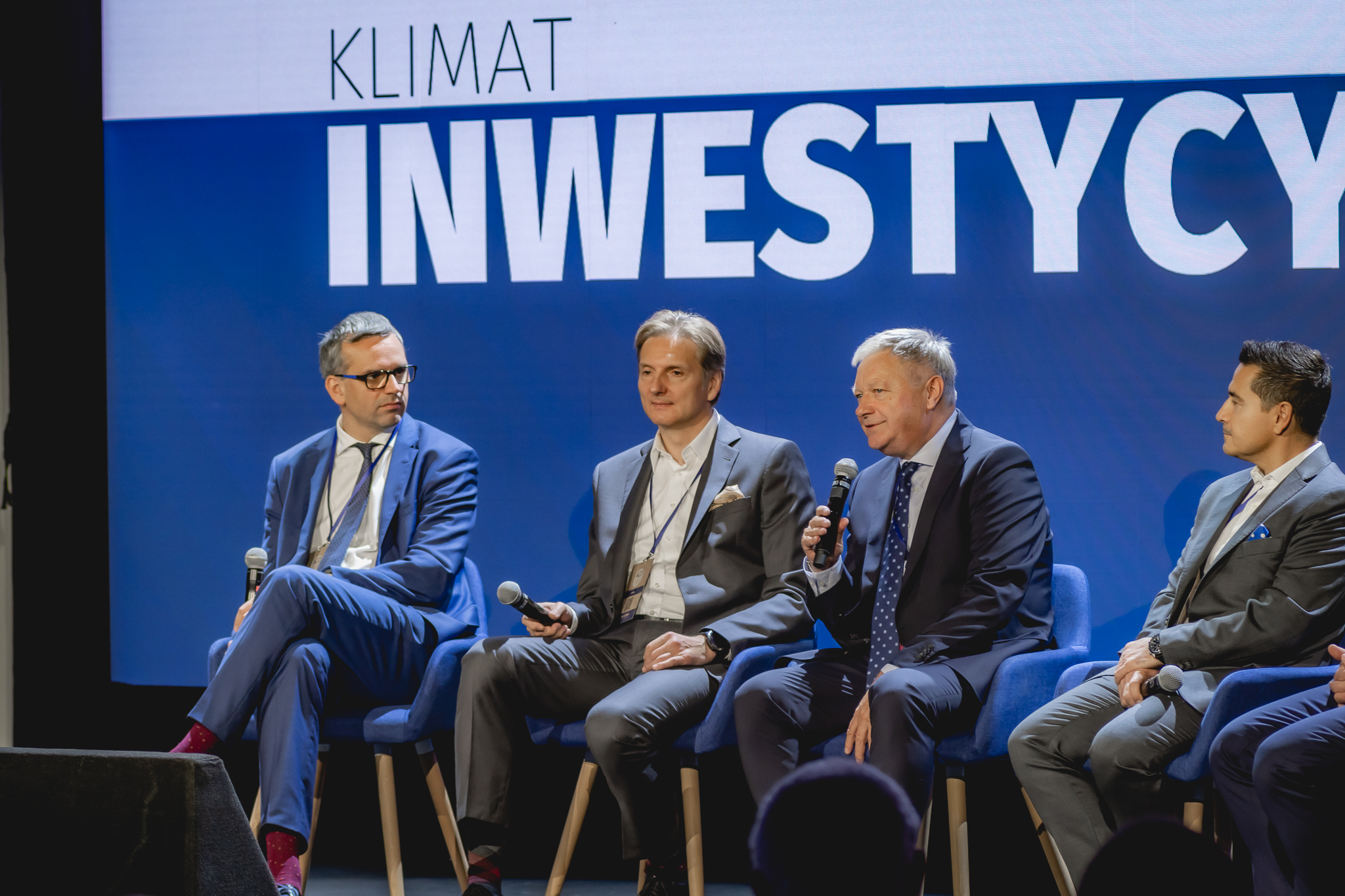
– In 2020, we had a better result than in the record-breaking 2019. Despite the pandemic, we recorded a significant increase in investments in the zone, so we can’t really talk about a crisis. This was also thanks to the fact that the pandemic and the crisis associated with it affected the manufacturing sector, which is predominant in the LSEZ, to a lesser extent – explained Marek Michalik.
Fabio Pommella, President of the Board of Whirlpool Company Poland, spoke about managing factories in crisis:
– We have faced several challenges in recent times. Of course, the pandemic caused problems with supplies from China, semi-finished products, parts necessary for the production of household appliances, reorganisation of factory operations due to pandemic restrictions, etc… However, for us, Brexit was also a big problem, especially because we have a factory in Britain. We had to actually redefine supply chain management, customer service, distribution and jump over many other challenges related to changes in regulations – he explained during the debate on the new investment climate. – How did we deal with the crisis caused by the pandemic? We were and are very flexible in the process of project management, a few years ago we decided to transfer some processes from the Far East, we created a business ecosystem based on sub-suppliers, subcontractors, service providers operating in Poland. I can’t say that we are already independent from Asia, but we are certainly less dependent than five years ago and this has helped us survive the crisis – Fabio Pommella concluded.
An important issue of the discussion was the progressive robotisation and automation of processes. In this aspect, we were able to hear experiences from both manufacturers and developers of warehouse and production space.
– The level of robotisation and automation is very advanced in our group. In our new dishwasher factory in Lodz, we ultimately intend to produce 3 million pieces of equipment per year. This is a giant factory and such factories are not found in Europe and are hard to find in the world. Looking at the automation process, we have nothing to fear. In these processes, the human factor is always present, will be with us and is extremely important. Poland has very well educated IT specialists, engineers, programmers and all the latest technologies come to Poland very quickly and are implemented – explained Konrad Pokutycki, President of the Management Board of BSH in Poland.
– A person who entered a warehouse ten years ago actually saw the racks, the forklift trucks, the roof, the walls. Today, when they enter a warehouse, they may be surprised. First of all, because we will not enter some of them, or we will only take a look and see a whole set of machines, robots, conveyors which are programmed, serviced, stood on the side and supervised by a man” – explained Michał Samborski.
The pandemic, as the business experience already gathered shows, has closed some plans but opened many new doors. It has definitely accelerated the use of innovation in Industry 4.0; automation, digitalization, the use of 5G technology. Which can also be seen in the research of the Lodz Zone, which runs three startup projects, including one 5G, and is the first zone to implement innovations based on this technology in investors’ factories.
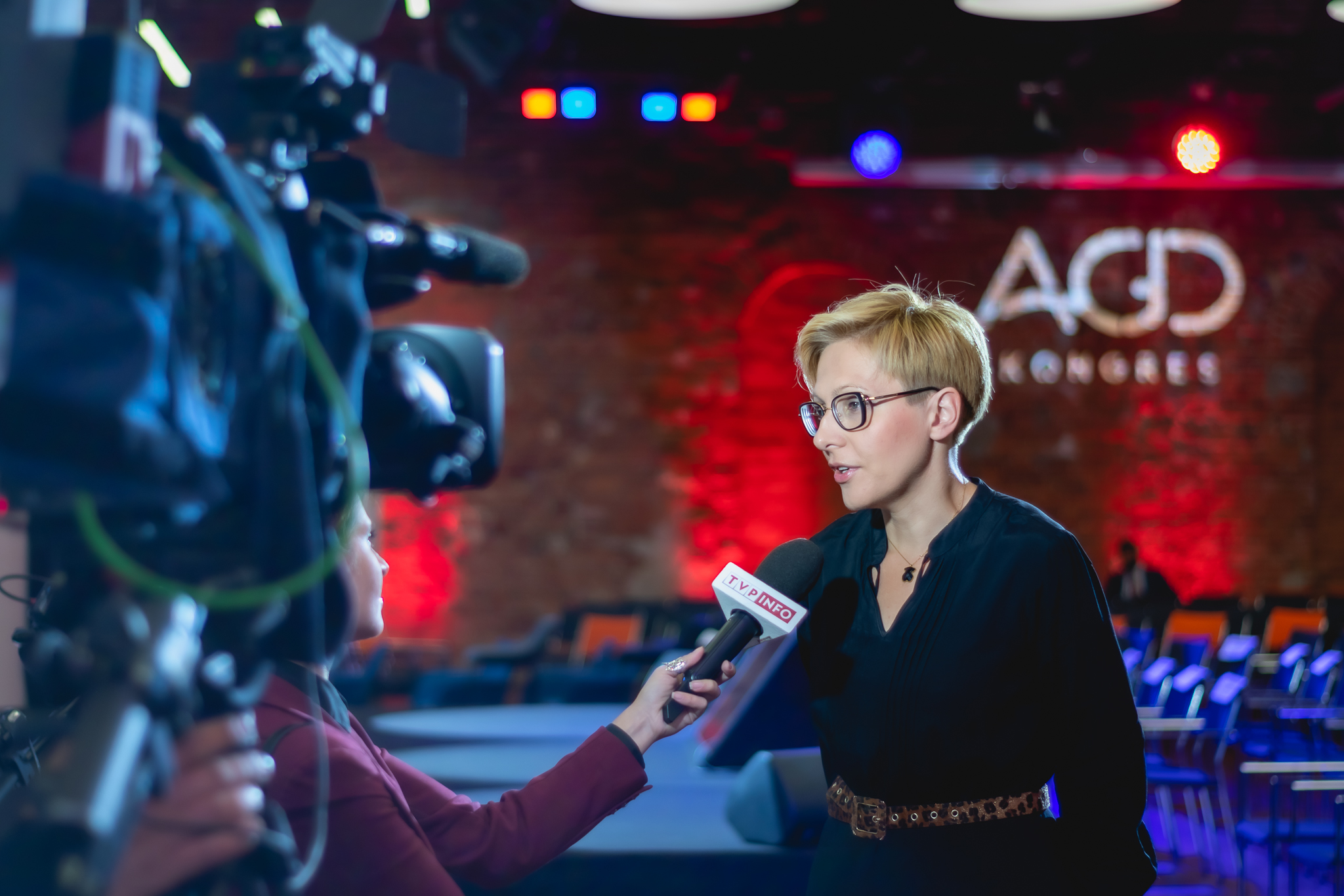
– The Congress is also a space for creating modern solutions for the household appliances industry. Thanks to the Innovation Hub, based on close cooperation with start-ups, which we have created in the Lodz Zone, we can accelerate the technological development of this key industry for the zone and for Poland. Innovations created in the Lodz Zone based on 5G, such as autonomous vehicles, live monitoring of production and processes, mass scanning of goods, digital twinning of factories, the use of AR and VR will allow companies operating in the Lodz Zone to make another leap in the industrial revolution, which is extremely fascinating” – explains Agnieszka Sygitowicz, Deputy President of the LSEZ.
The word “fascinating” also came from participants’ mouths in the context of the show that the Zone and its partners prepared during the panel on supply chain. Thanks to Omniview startup, which is accelerated in the Lodz Zone, and the use of 5G and VR technologies, the participants moved live to one of the largest warehouses of BCUBE company in Poland, which is located in Silesia. Thanks to the use of 360 cameras, special VR glasses and 5G technology, it was possible to move several hundred kilometres in a second. Such solutions are entering industry, e.g. to facilitate remote employee training. They are created, among others, thanks to the aforementioned Innovation Hub of the LSEZ, which was presented on stage by Dorota Lombardi and Magda Kubicka from the LSEZ. Today the Zone is a business ecosystem based on a wide offer: PIT/CIT exemptions, industrial parks, start-up programmes, as well as subsidised training for employees or education of future employees at the Zone’s school – the Automation and Robotics Technical School.
The Lodz Zone drives household appliances
The household appliances cluster in the Lodz Zone comprises almost 60 investments worth over PLN 2.5 billion and almost 7 thousand jobs. These numbers will definitely increase if we take into account the companies from the industry which are located in the Lodz region. It is in LSEZ that washing machines, dryers and dishwashers that are used in homes in Germany, Italy, Spain, the USA and many other countries around the world are produced. Poland is home to around 35% of all major household appliances produced in the EU. Every second washing machine, dishwasher or clothes dryer produced in the EU comes from our country.
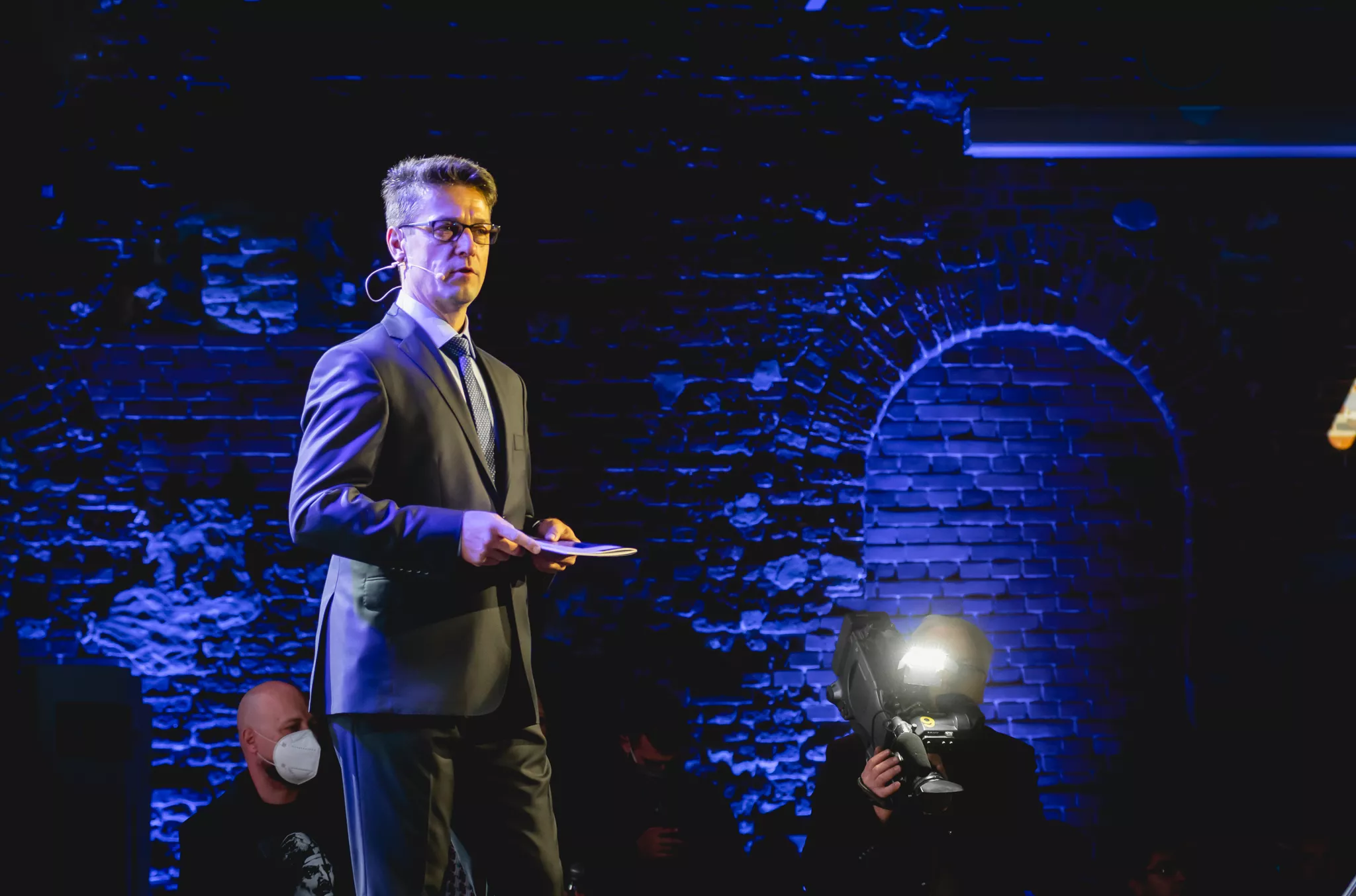
– Poland is number one in the European Union in terms of production of household appliances, which is becoming more and more technologically advanced. Our Congress is the biggest conference of the sector in Europe. Together with representatives of companies and state administration we discussed the new economic climate and challenges for household appliances – says Wojciech Konecki, President of the Association of Household Appliances Employers – APPLiA Poland, co-organiser of the event.
Reports say that the value of sold production of household appliances exceeded PLN 23 billion last year, an increase of about 5%, and the value of exports of large household appliances broke the PLN 20 billion barrier for the first time (EUR 4.6 billion) and was 6% higher than the year before.
Logistics and e-commerce, i. e. the revolution in shopping
There are many challenges, one of which, as the growing sales and production figures show, is logistics and Internet sales. That is why two panels were devoted to these topics during the congress. The future of e-commerce was discussed by Jacek Palec CEO of Frisco.pl and Grzegorz Wachowicz, director of RTV EURO AGD – the leading distributor of household appliances in Poland. Demand for online shopping during the pandemic was so high that companies could not keep up with the shipment of goods. Those who reacted quickly enough and rebuilt their sales model by increasing their online departments gained market share and strengthened their position. Those who missed this opportunity have to catch up with the leaders, because nothing indicates that consumer habits will change. Internet sales should grow in the coming years and slowly replace traditional sales – according to expert analyses.
Such large sales must be followed by logistics, not only in terms of the size of warehouses, but above all in terms of automating processes to shorten the distance between the logistics centre and the customer. This issue was raised by logistics experts Arkadiusz Rudowicz from BCUBE Poland and Artur Olejniczak from the Higher School of Logistics. There are indications that the key word in the coming years will be “automation and robotisation of processes”. All this in order for the ordered goods to reach the customer even faster. Requirements are changing dramatically. Just ten years ago, we were ready to wait a few days for a delivery. Today, picking up a package the day after ordering it can be irritating for some. Autonomous mobility – this broad slogan hides the future. It could be forklift trucks that drive themselves around the hall and deliver packages, or self-driving trucks.
A new way of recycling and HR challenges
Representatives of the household appliances sector indicated that currently the biggest challenges are related to waste management, as the industry produces the so-called electrical waste. A lot has already been done in this aspect and the level of recycling in the household appliances sector is one of the highest if we look across various sectors of the economy.
– The household appliance industry has invested more than PLN 1 billion in the collection and processing system for this waste equipment in recent years. Finally, we are dealing with waste household appliances as a raw material and not as waste, explains Grzegorz Skrzypczak, President of ElektroEko S.A.
Increased production also means more waste in the future. That is why manufacturers already minimise the risk and use more and more environmentally friendly elements in the production of household appliances, or elements proven in the context of their recovery and reuse. Recycling challenges were discussed by: Julia Patorska Partner at Deloitte, Paolo Falcioni General Director of Applia Europe Association of Household Appliance Manufacturers, Grzegorz Skrzypczak President of the Board of ElektroEko S.A., Prof. Maciej Chorowski President of the Board of the National Fund for Environmental Protection and Water Management.
The new HR is the short slogan that opened the discussion on the labour market. Many topics were discussed. From statistics showing the level of employment, unemployment, inactivity rate, number of jobs, through employment conditions, demand for professions, to the future and demographics. Still the biggest problem of the HR sector, also in the context of the household appliances industry, is the shortage of employees on the market.
– The aspect of the lack of workers on the market in Poland is very visible. We do everything to recruit as many people as possible, to encourage the unemployed and pull them out of unemployment. We also attract workers from abroad, because without this large support some production lines would not be able to work so efficiently – said Iwona Szmitkowska, the President of the Board of Work Service JSC, Gi Group.
The following guests took part in the debate led by Iwona Szmitkowska: Zofia Korecka-Rejczak, Managing Director Miele Sp. z o.o., Olgierd Bałtaki HR Director Samsung Electronics, Robert Lisicki Director of the Labour Department, Lewiatan Confederation, Marcin Budzewski Vice-President of the Institute for Labour Market Analysis.
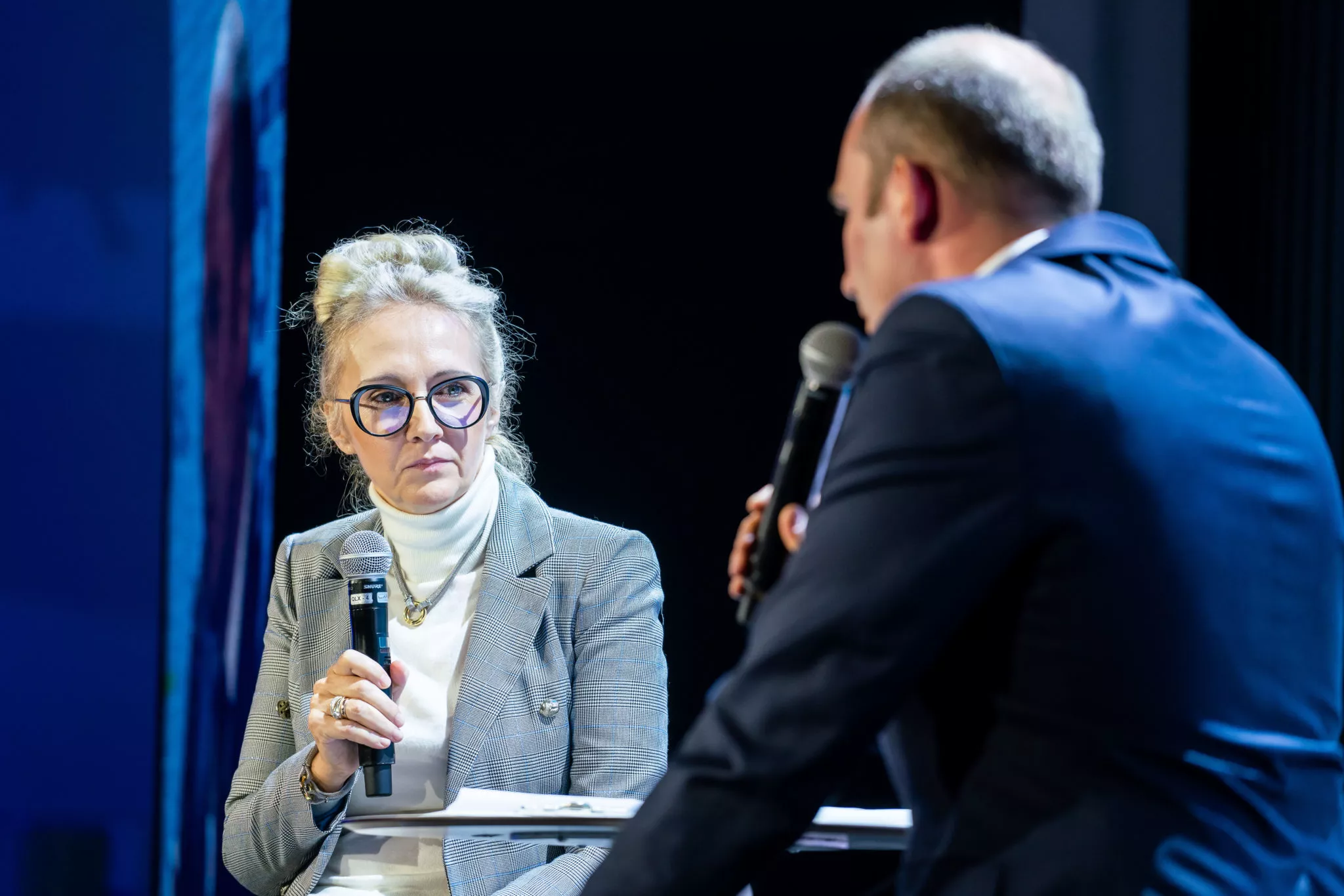
The 3rd Household Appliances Congress ended with the long-awaited by the participants Household Appliances Business Mixer, i.e. quick meetings at the tables: manufacturers with sub-suppliers, service providers, business advisers or start-ups offering innovative solutions.
– Meetings in the business mixer very often turn into long-term cooperation. We know this from the participants. With every such meeting there are more and more people willing to participate. This is a unique event, because in 90 minutes each participant can gain about a hundred new contacts, which is not possible in everyday business reality, explains Marek Michalik.
Long talks about the potential of cooperation between particular partners are a guarantee of further cooperation, realisation of ambitious plans and overcoming challenges faced by the household appliances industry.
